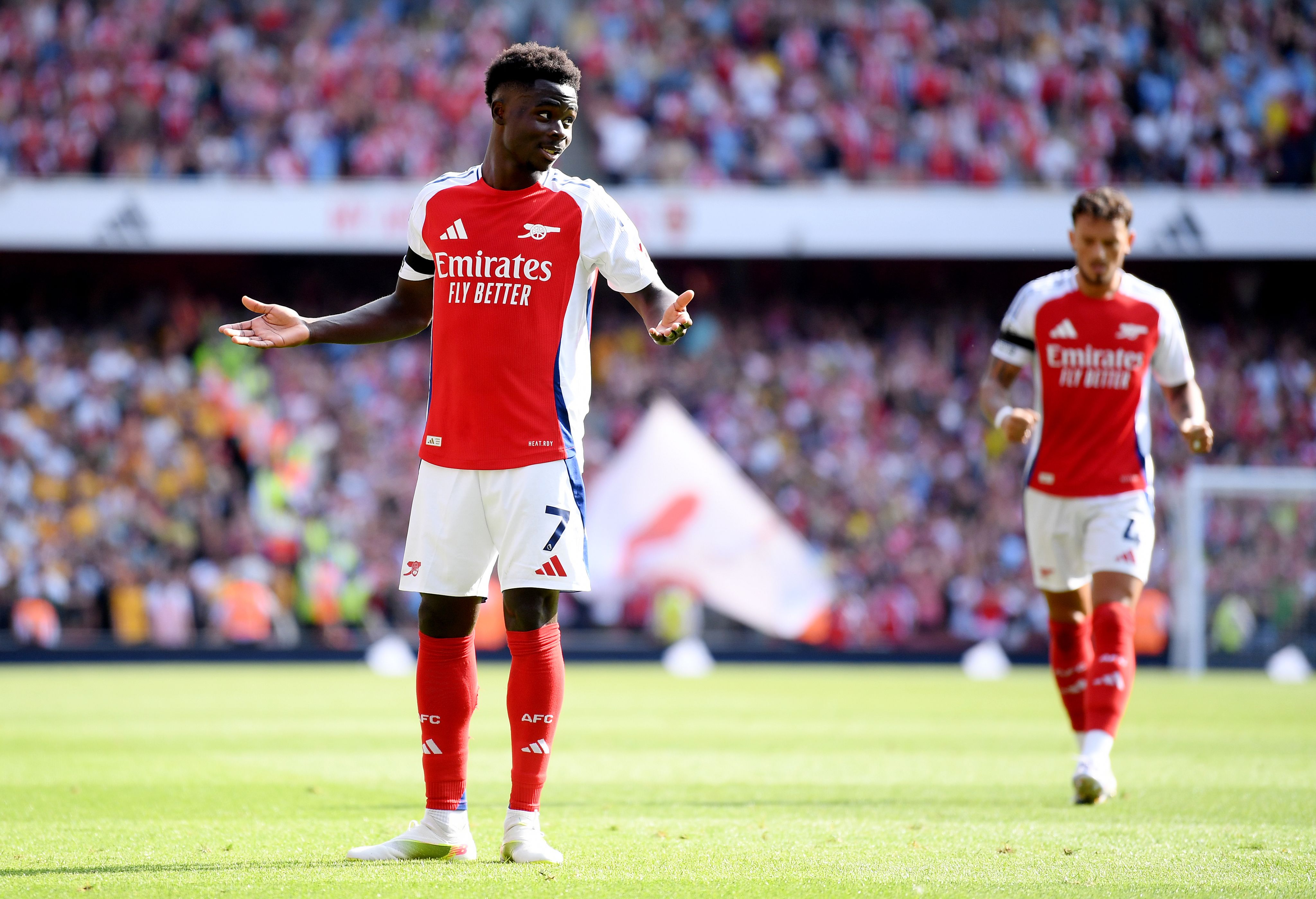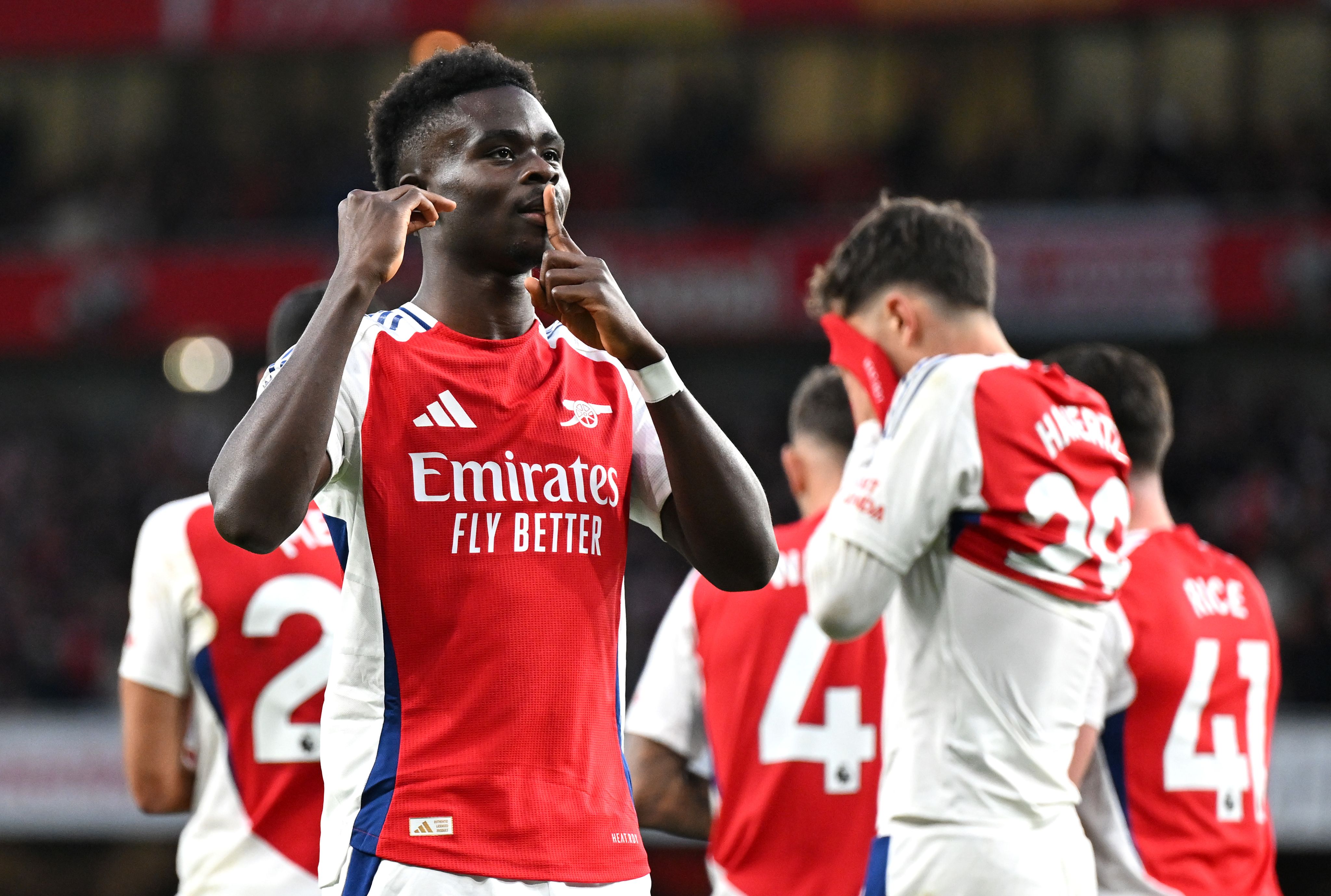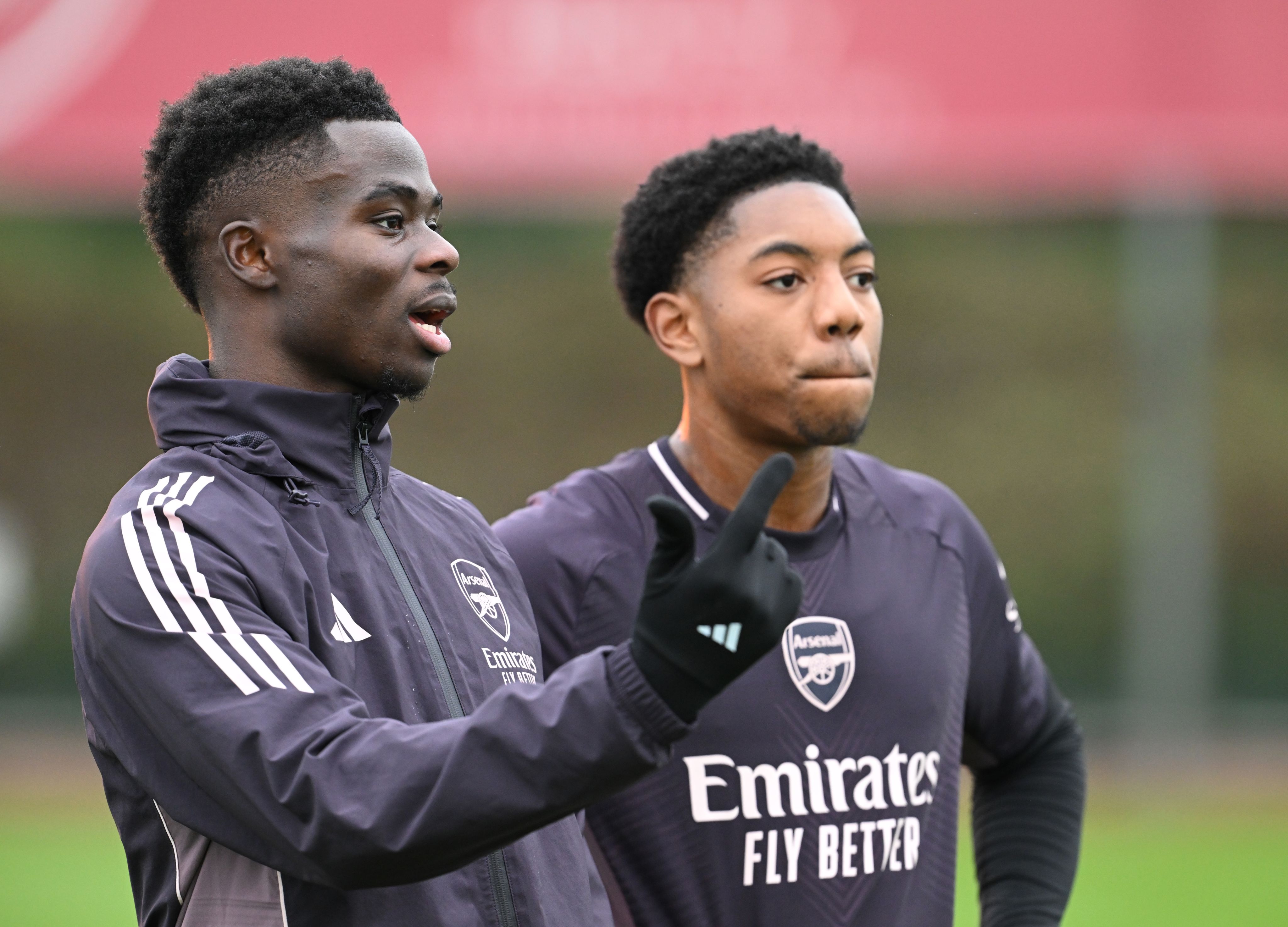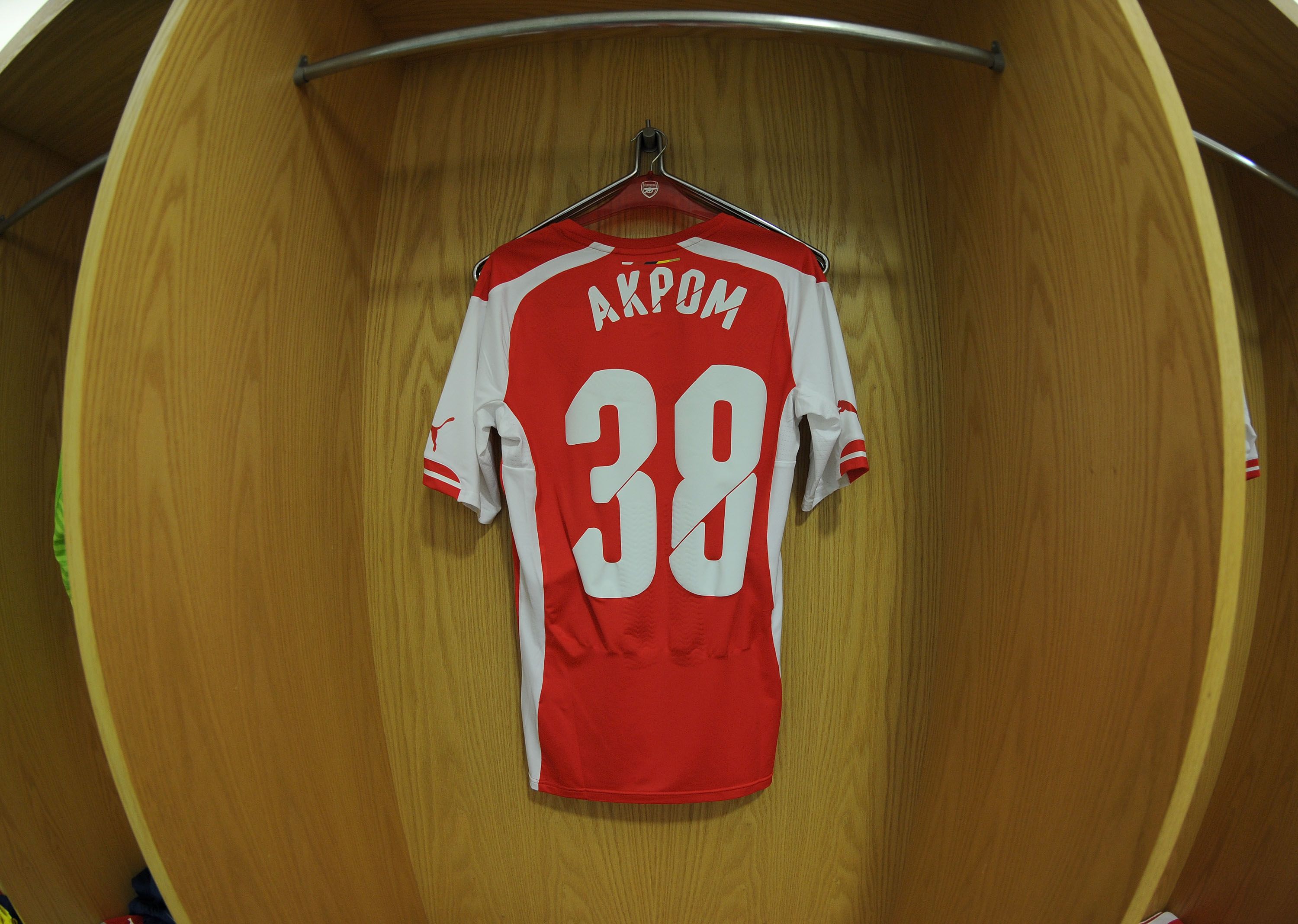Saka keen to keep taking chances - in more ways than one
Bukayo chats about his footballing philosophy, the sacrifices his dad made to make him the star he is, and a special memento from Chuba Akpom
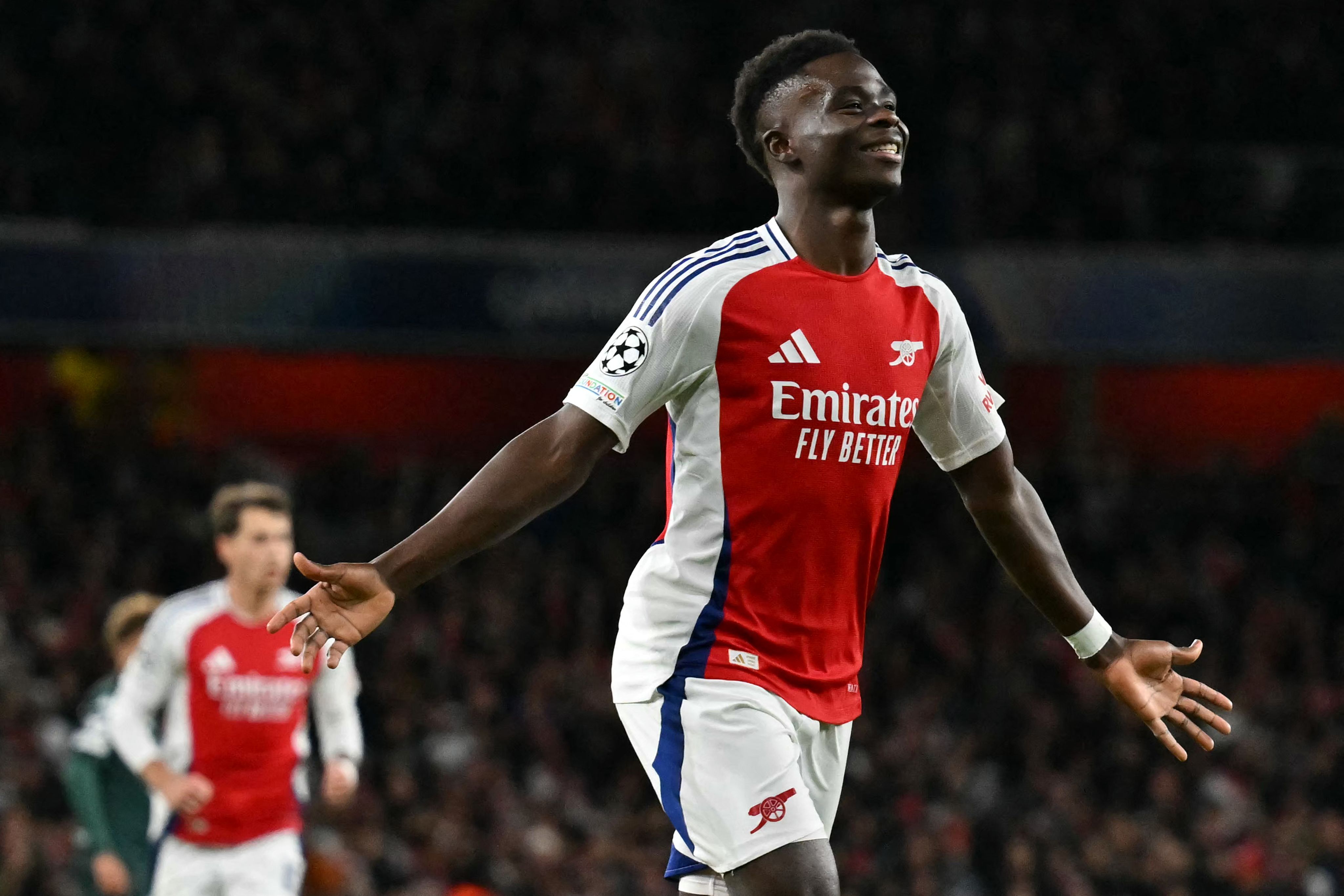
Back in the very early days at the Hale End Academy, Bukayo Saka received words of advice that have stuck with him ever since.
“It was something one of my first coaches said that I always think about,” he explains. “He said to me, ‘If you don’t shoot, you don’t score,’ and you can take that in different ways.
“In a game if you take it literally – if you don’t shoot then of course you have no chance of scoring. But also I feel like you can take it in other ways and apply to whatever you do.
“Basically if you don’t take a chance, or if you don’t want to take risks, then you limit yourself in terms of success in certain areas. For example if you don’t want to step up to take a penalty, or if you don’t want to take a free-kick, you will never score them. So that’s what I mean: if you don’t shoot, you don’t score.”
It’s a philosophy that has served Bukayo well, ever since he first stepped through the doors at Hale End aged eight back in 2010, right through to breaking through to the first team aged 17, to starring for his country and regularly leading out Arsenal as captain.
His fearless approach to the game is evident on the pitch. It’s a common sight to see our No. 7 surrounded by two, three, four opposition players whenever he picks up possession. But it’s equally common that he delivers an end product.
Go back and watch footage of a young Bukayo in our youth teams, and it was a similar story. His approach to the game hasn’t changed, but as he has learned and gained experience, he has been able to develop his considerable skillset to reach new heights year on year.
So how has he managed it? What is his attitude to learning and who have been the key figures along his journey? It all starts, he said, from his dad.
“My dad is probably my biggest influence, certainly in terms of the amount of time I spent with him on the road, going to football, travelling back, being at home - everything,” Bukayo says.
“He always made time for me and my brother, he went out of his way to teach us different things about football, about life, about business, about family. He did a lot of that, so it’s definitely him. He was the one driving me to and from Hale End for training and for games all the time.”
Bukayo spent eight seasons at our Hale End Academy in east London – flourishing through the age groups before becoming a full-time scholar at London Colney in 2018. That’s a lot of training sessions, a lot of matches, and therefore a lot of car journeys Bukayo shared with his father, Yomi. So what was the dominant choice of conversation on the commute?
“Well, on the journey there, he would pick me up from school and we had to go straight there, because there was always a lot of traffic, so it took a while. I remember he would always bring me a packed lunch ready, hot food for after school, so I’d eat that and then I would crash out and sleep until we got there! I would wake up and all of a sudden we were at Hale End.
“But on the way home we would always talk about training, how it’s going, and he’d give me constructive criticism if I needed it. He had advice for me, what I needed to improve on, or he said if I had done well and how proud he was of me,” Bukayo adds.
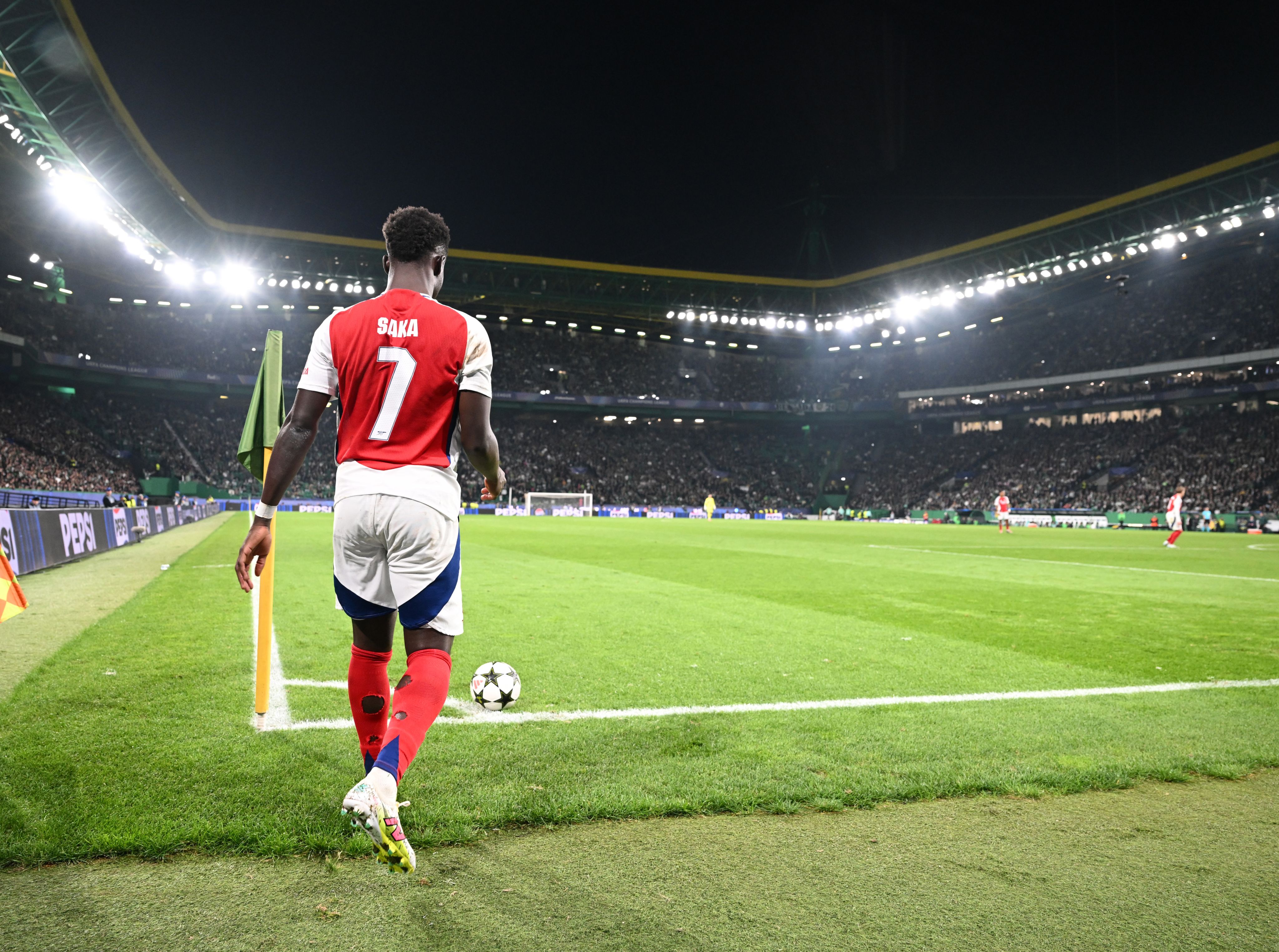
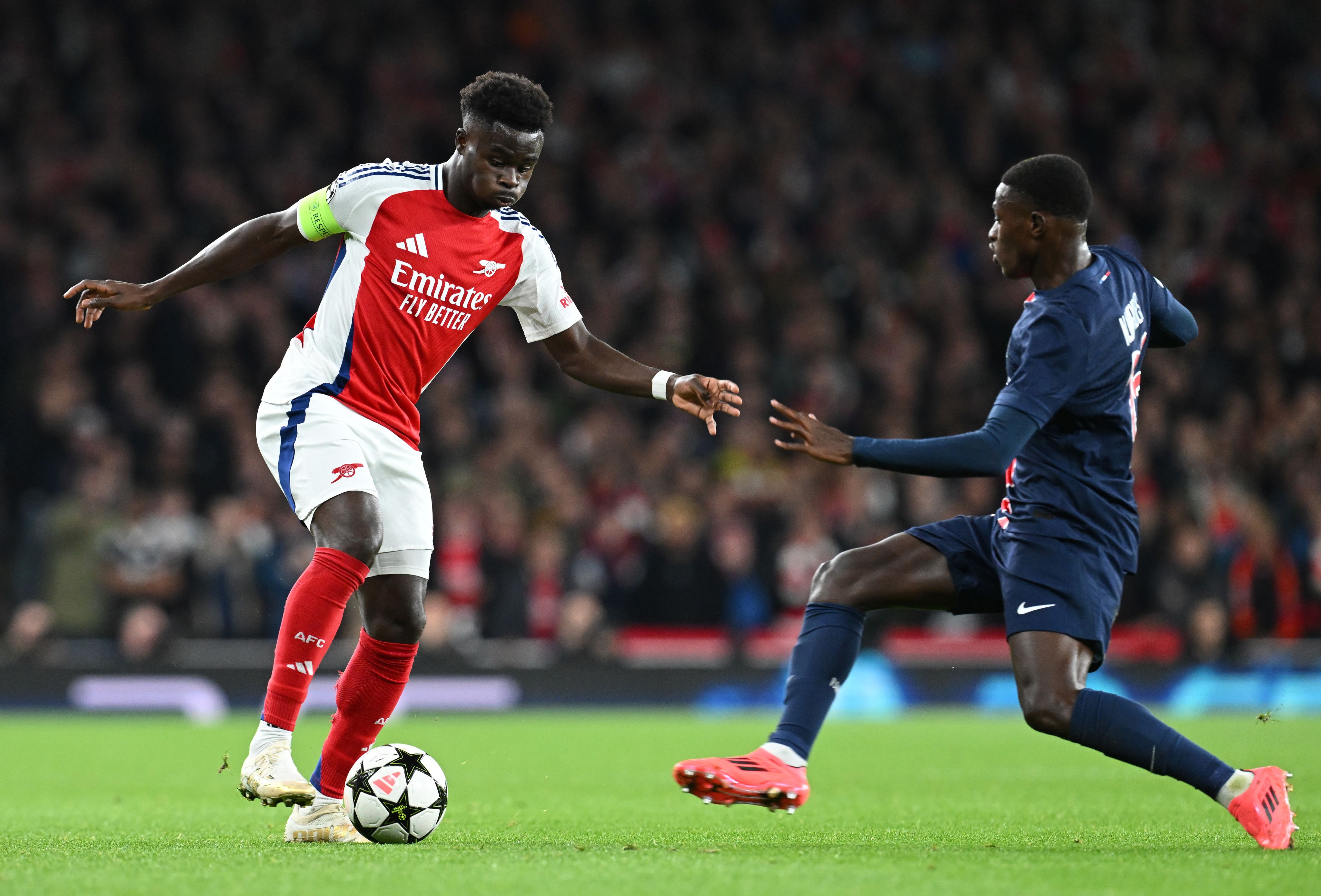
"if you don’t take a chance, or if you don’t want to take risks, then you limit yourself”
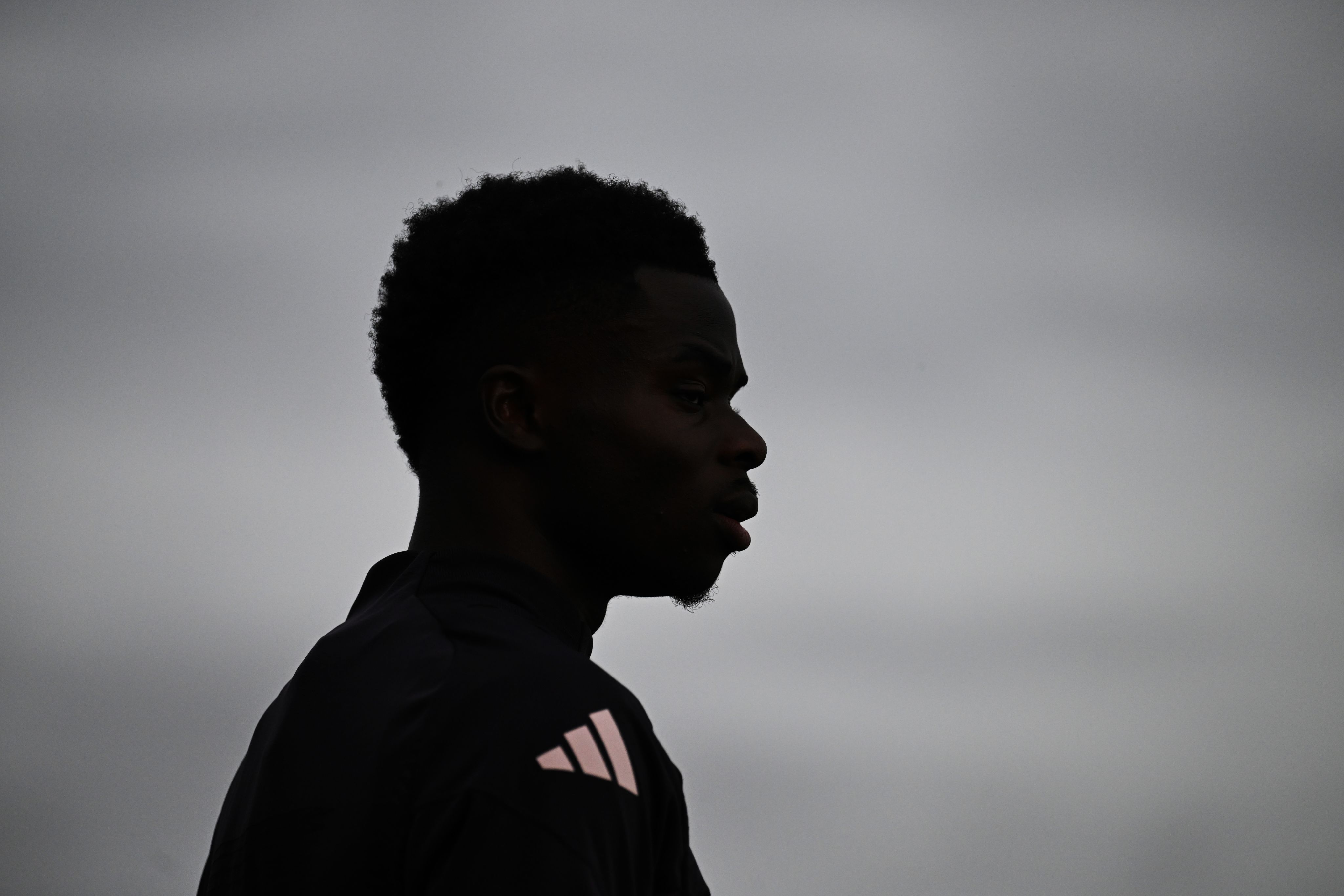

His dad’s personality clearly rubbed off on the youngster, and helps explain the winger’s laid-back persona. “It was great because my dad was always really composed, really calm and was always so good at dealing with everything that was put on his plate, or on my plate,” Bukayo adds.
“Any decision, he would help me with calmly. If I was ever upset with anything at training, or if a coach put me out of position for example, and I went to my dad complaining, he was always so calm. He never overreacted at all. He was reassuring, told me not to worry, kept me calm and told me how I can learn from it. So that’s what I mean – he’s been a huge influence.”
Coming through the ranks at Hale End meant that Bukayo had plenty of other role models too, and just as he’s now inspiring our next generation, he himself looked up to those who broke into the first team before him.
“When I was in the academy all of us used to look at Alex Iwobi, Chuba Akpom and Jack Wilshere,” he says. “They had come through the academy, were quite close to our age as well, and we got to go to a lot of games at Emirates Stadium so we got to see them play a lot.
"Obviously Jack at the time was really, really flying – he was a joy to watch. We all loved watching him, and we saw a lot of ourselves in him too because he had come through the way we wanted to. The same for Alex and the same for Chuba.
“I will always remember, in fact, when I got Chuba’s shirt after a game once. It was after he came on in a game at Emirates Stadium. He knows, because he was at Hale End, and I know because I was there too – we know where the Hale End boys sit in the stadium. So afterwards, when he heard us all screaming his name, he threw his shirt to us and I was the one who got it!
“I remember being so happy that day – I think I even DMed him on Instagram afterwards to tell him I got it! I was about 13 and it’s a great memory to have. Stuff like that sticks with you, so that’s why, after the games at the Emirates, if I see the Hale End boys I always try to give them my boots or my shorts or something, because I know what it means. For us it might be a little thing, but as a kid it can mean everything.”
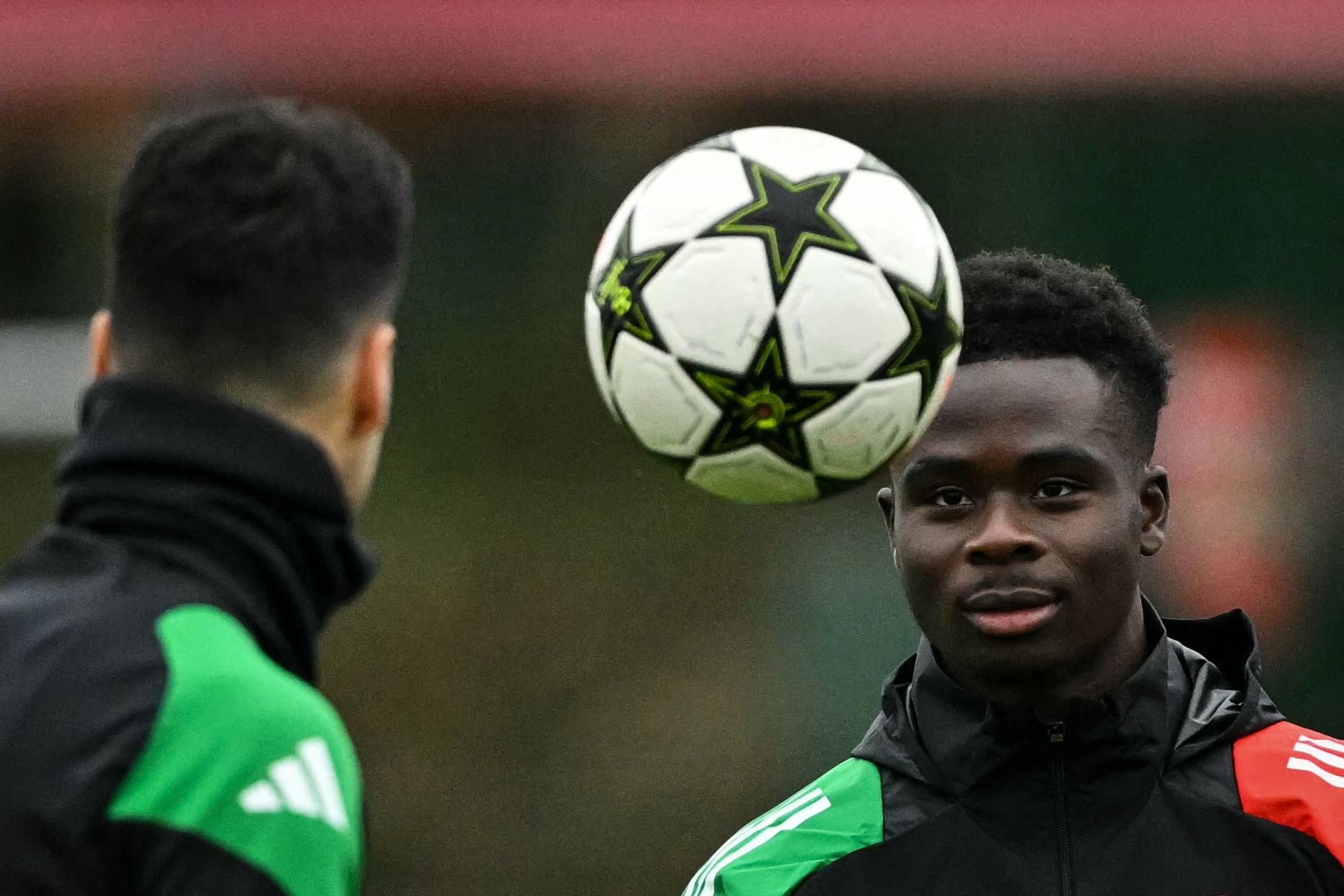
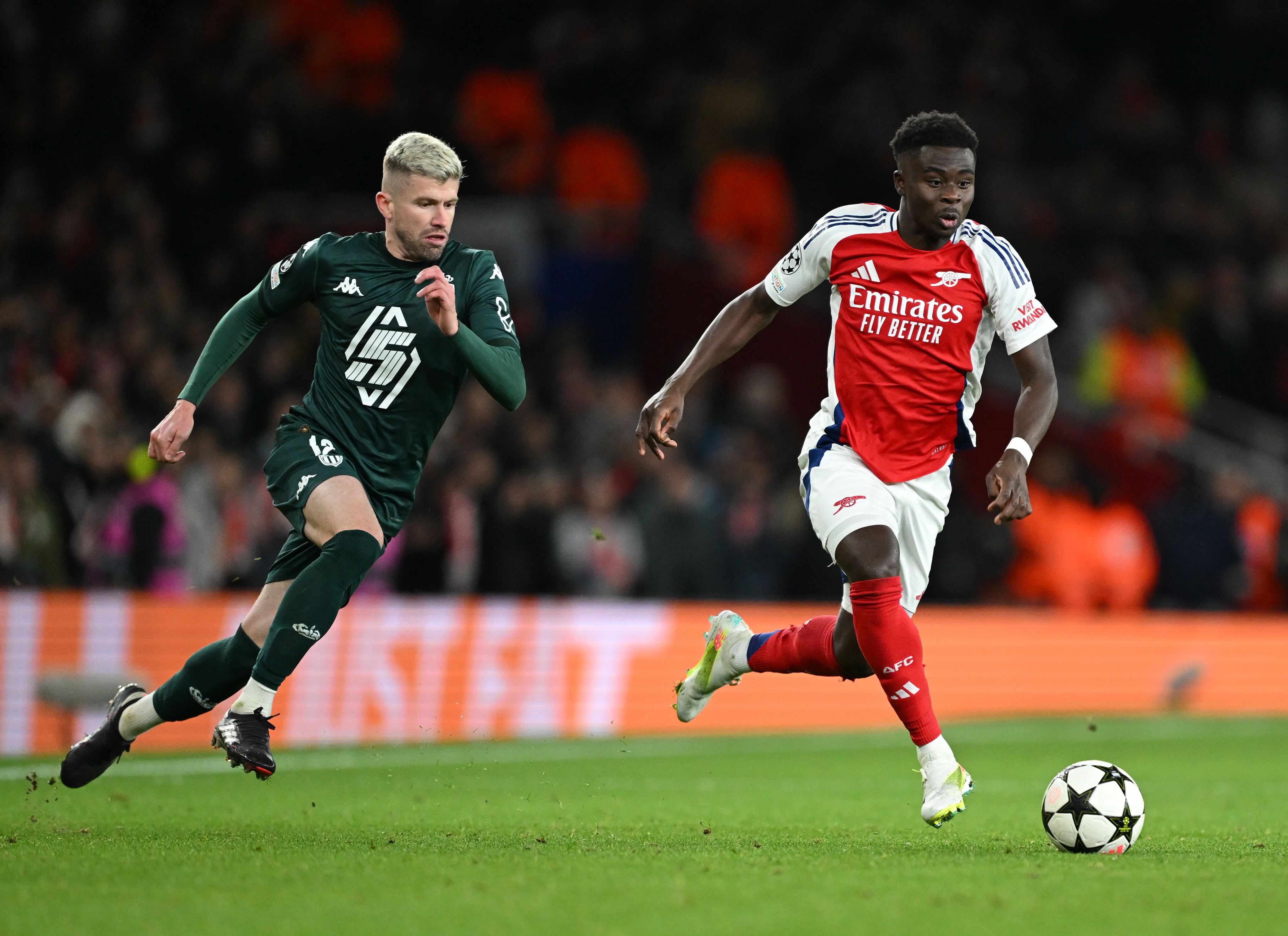
Once he stepped up to the first-team dressing room himself, Bukayo maintained his thirst for knowledge and development, and says the way he was welcomed into the fold by the senior players at the time was a huge boost.
“I’d say every young player needs a bit of help and guidance – it’s not so easy coming into a big team like this. I’ve always said that David Luiz had one of the biggest influences on me. From the first few sessions I had with the team, I remember him mentioning me in team meetings about how good I am, and he told everyone how much he believes in me.
“For a young player to hear that is great. I was shocked that he even did it, to be honest. After that he took me under his wing, and advised me. And it wasn’t just me, it was all the young players. He was there for us. Also I had a really close relationship with Auba and Laca too. Those guys were the stars of the team, but they were so humble too. They talked with all of us young players, and not just about football all the time. They would just chat to us to make us feel a part of everything and involved in the team.”
Becoming a first-team player at the age of 17 always felt like the start rather than the end of the journey for Bukayo, though. He had been a part of the club for more than eight years before fulfilling his dream of running out for his senior debut against Vorskla Poltava in November 2018, but he wanted more. Any achievement or milestone in his rocketing career was just seen as a stepping stone to the next one.
“I think my mindset has always been to constantly improve, so I don’t think there was a particular year when I felt that I’d made a decisive step or something clicked,” he says.
“I don’t think there was a drastic improvement at any point. I’ve just wanted to consistently improve all aspects of my game, and take my game to another level each year. That’s been my mindset and my approach, and I think I’ve done pretty well at it so far.”
"I’ve just wanted to take my game to another level each year. I think I’ve done pretty well at it so far"
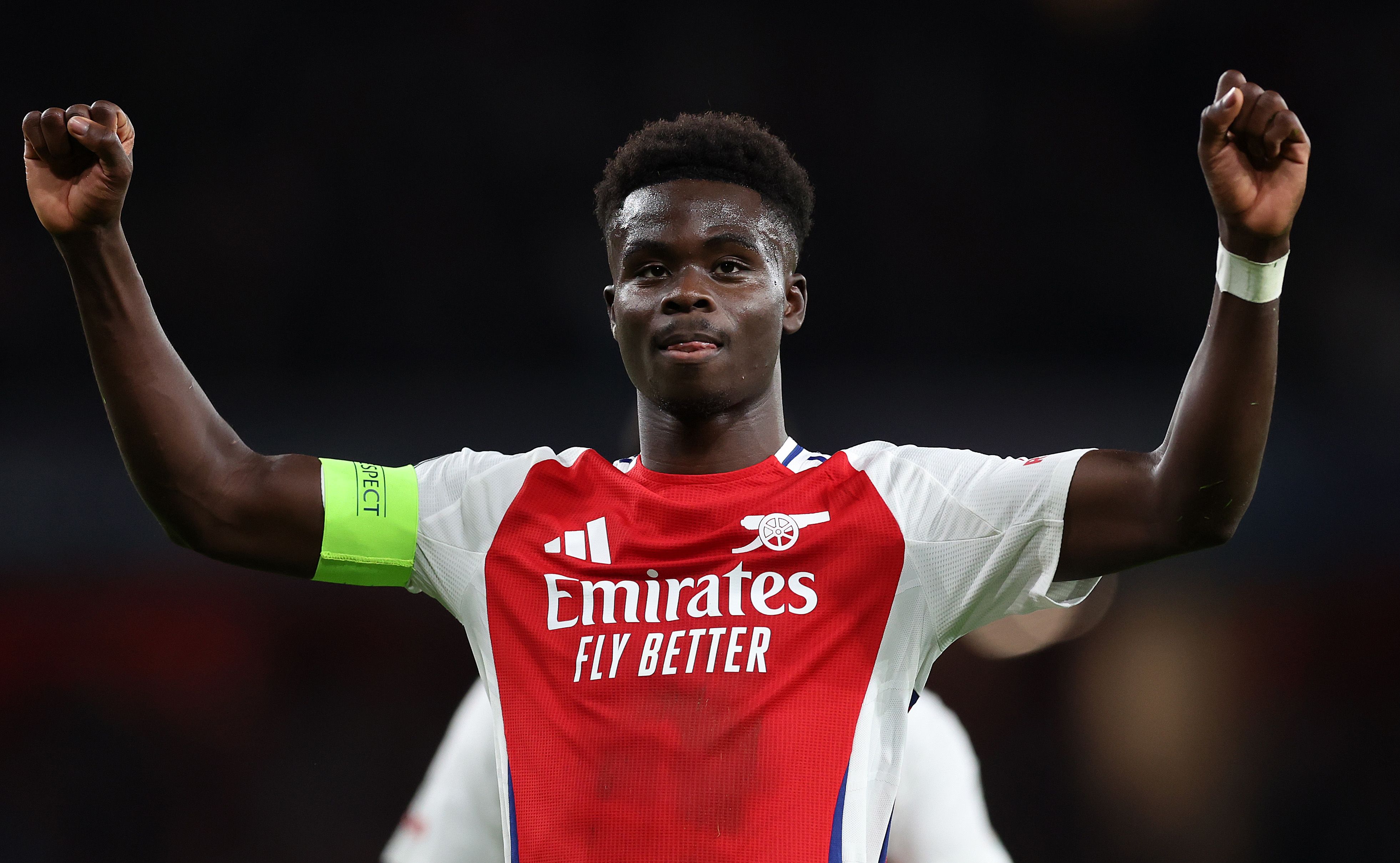

Part of this desire to learn and improve is the work Bukayo – and all of the team – undertake between matches, analysing their own game, and identifying weaknesses in opponents. So does Bukayo enjoy the ever-expanding analytical side of the sport?
“Yeah, I think the game as a whole tactically has progressed so much. We do a lot of work on tactics here and meetings to study the game, and I think it’s really important. It helps me a lot. I try to pay full attention to all the details in our meetings and all the tactics that we’re given here, because when I do I go into each game feeling so prepared and confident. I feel ready for each situation that could happen because I really know what to expect. So I definitely believe in it and believe it’s an important part of the game.
“It’s obviously not as good as being out on the pitch and kicking a ball – nothing beats that – but it’s a big part of being the best version of yourself.”
Still only 23 years of age, Bukayo has a lot of football ahead of him before he needs to think of a post-playing career, but does he think his interest in learning could see him take up coaching in future?
“To be honest, at my age, I’ve got absolutely no thought in my mind right now that I want to be a coach,” he says with a smile. “But I know a lot of players that I’ve spoken to who felt the same way as me and changed their mind towards the end of their career. But for me right now, I’m in no place to want to start my coaching badges or want to be a coach. It’s not something I’m focusing on at the moment.
“I’ve enjoyed being part of some sessions when I’ve helped out with our Community department in the past, meeting some of the kids on the club’s programmes, but that’s very different.
“I enjoy interacting with them, giving something back as well. It’s more about the whole experience and making sure everyone has a good time rather than serious coaching.
“Coaching a team is completely different, obviously: having that pressure on you to win, thinking about each player in the team, whether he’s happy or not, thinking about the tactics you need to play, transfers, everything. There’s a lot more that goes into coaching than just kicking a ball and having fun!”
All of that can wait. For the moment Bukayo is all about getting the absolute maximum out of his ability that he can, and continuing a stratospheric rise throughout his career that shows no signs of slowing down.
